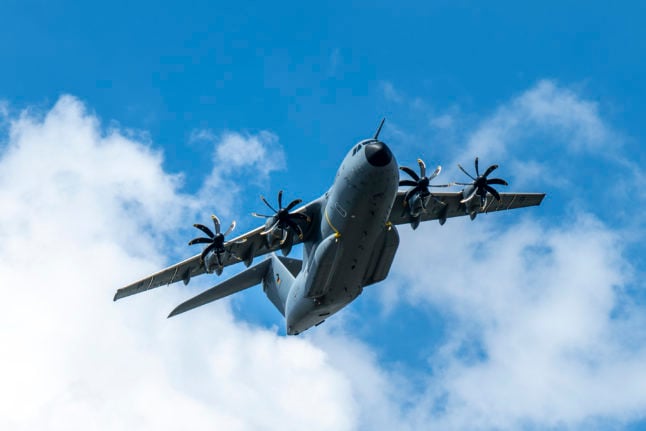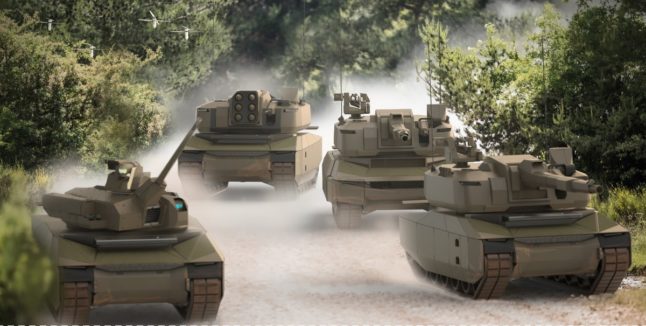The budget committee in the lower house of parliament gave the green light for an initial payment of €560 million, a committee source told AFP.
The long-range Arrow 3 system, designed to shoot down missiles above the Earth’s atmosphere, is powerful enough to offer protective cover for neighbouring European Union states.
The committee also approved around €950 million for the purchase of six German-made Iris-T SLM air defence systems, the source said.
The Arrow 3 system is expected to cost up to €3.99 billion in total, according to finance ministry documents seen by AFP.
The money will come from a landmark €100 billion fund unveiled by Chancellor Olaf Scholz to bolster the country’s defences in the wake of Russia’s invasion of Ukraine.
If the deal goes ahead as planned, a contract will be signed by the end of 2023 and Berlin expects the Arrow 3 system to be delivered in the final quarter of 2025.
The €560 million are intended to set up manufacturing and production in Israel.
2,400 kilometres
Scholz told a government press conference earlier on Wednesday the investment was “a big project that doesn’t just relate to Germany itself”.
Asked if he thought there was any risk in making the initial payment, Scholz said things were “progressing bit by bit and we believe that everything will also be approved”.
According to a report in the Tagesspiegel newspaper, the federal audit office had warned against releasing funds before initial construction work for the system had been completed in Germany.
The planned location in Brandenburg state could cause problems because of the “sandy subsoil”, it said.
Committee member Karsten Klein, from the liberal FDP, told AFP the release of the funds would help ensure Germany is “equipped with modern air defence systems”.
READ ALSO: German military has ‘too little of everything’
The Iris-T system had “already proven its reliability in Ukraine”, he said.
According to Israeli manufacturer IAI, the Arrow 3 system is able to intercept ballistic missiles fired from a distance of up to 2,400 kilometres (1,490 miles).
The system was first deployed in an Israeli air force base in 2017 and has been used to protect Israel against attacks from Iran and Syria.
The German government has led a push to bolster NATO’s air defences in Europe after seeing Russia’s relentless missile strikes on Ukraine, urging allies to buy deterrence systems together.
More than a dozen European countries have so far signed up to the so-called European Sky Shield initiative.



 Please whitelist us to continue reading.
Please whitelist us to continue reading.
Member comments